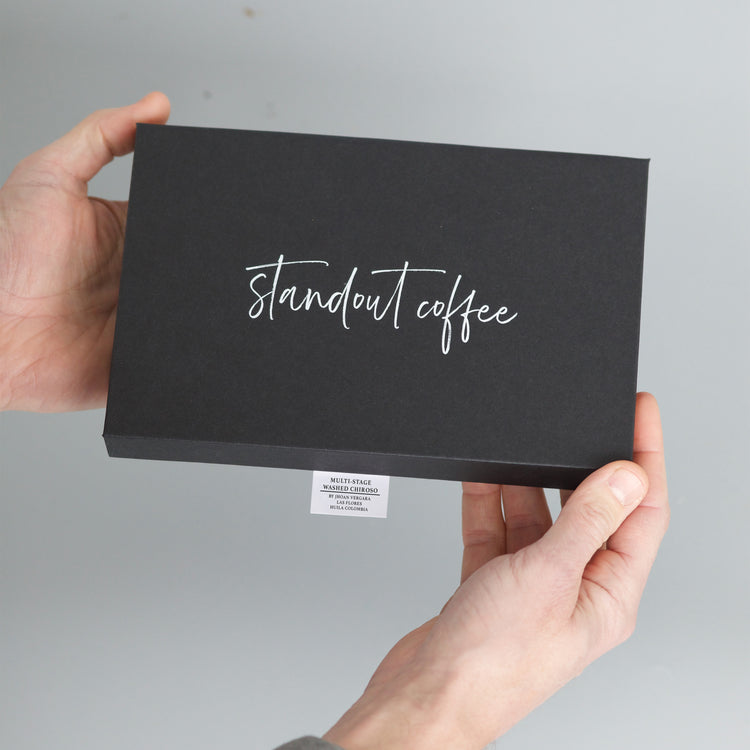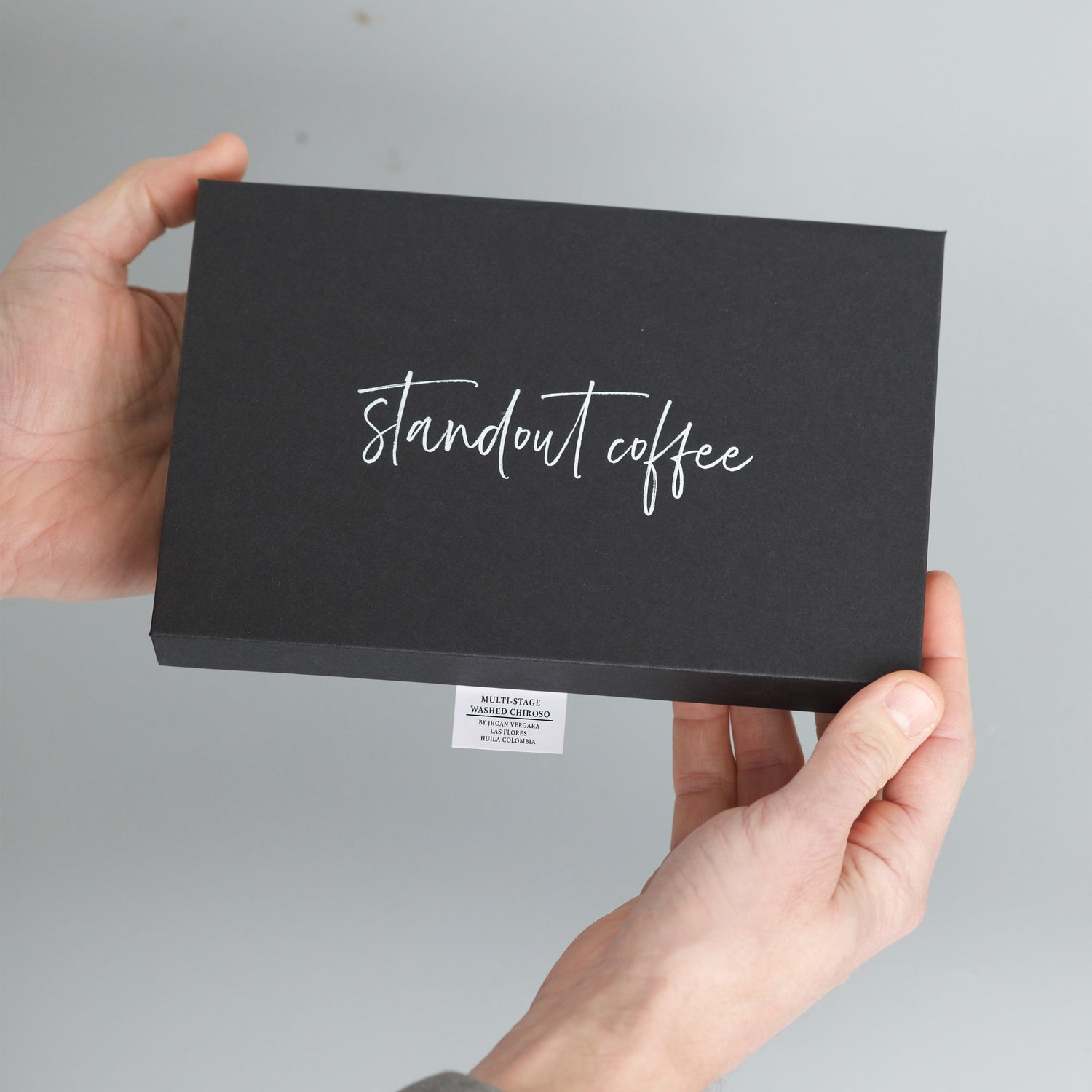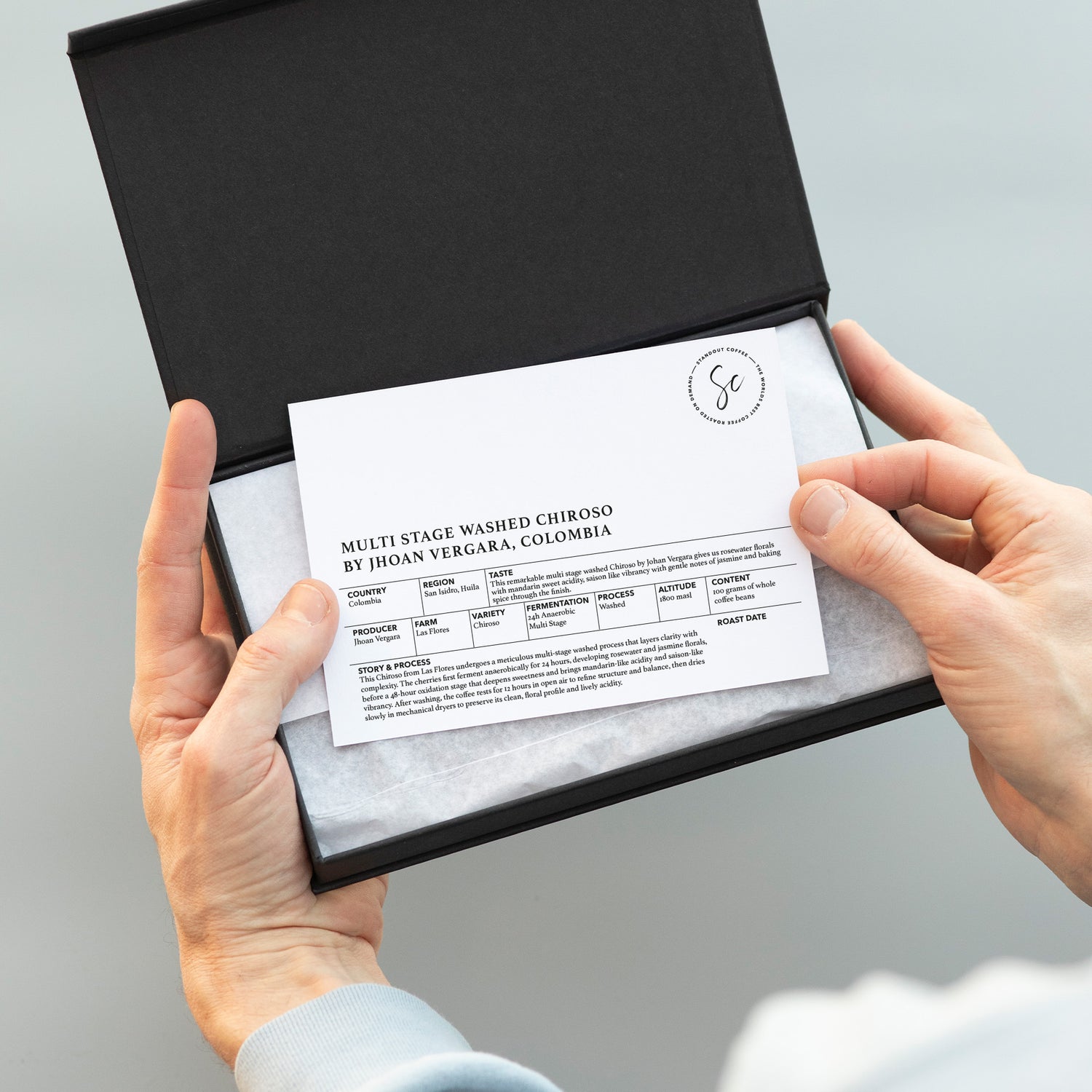

Product Details
Producer: Jhoan Vergara
Farm: Las Flores
Where: San Isidro, Huila, Colombia
Variety: Chiroso
Processing: Multi-stage Washed
Fermentation: 24 hours anaerobic fermentation in cherry + 48 hours oxidation then washed + 12 hours oxidation
Drying: mechanically dried
Taste Description: Rosewater florals with mandarin sweet acidity, saison like vibrancy with gentle notes of jasmine and baking spice through the finish.
Multi-Stage Washed Process — Las Flores, Huila
This Chiroso lot goes through an intricate three-phase fermentation designed to bring out florality, structured acidity, and layered sweetness while maintaining remarkable clarity.
1. 24 h Anaerobic Fermentation in Cherry
Freshly harvested cherries are placed in sealed tanks without oxygen. Inside this low-oxygen environment, yeasts and bacteria begin to ferment the mucilage slowly, emphasizing fruit precursors and floral esters. This stage builds the aromatic foundation — rosewater and jasmine tones typical of Chiroso — while maintaining a clean acid structure.
2. 48 h Oxidation before Washing
After the anaerobic phase, cherries are exposed to oxygen in open tanks. This “oxidation” step allows controlled aerobic fermentation, deepening sugars and producing mandarin-like acidity and gentle spice notes. By extending contact with oxygen before pulping, Jhoan adds a saison-like complexity — lively, effervescent, and bright.
3. Washing and 12 h Post-Wash Oxidation
The coffee is then depulped, traditionally washed to remove mucilage, and rested again in open air for about 12 hours. This short, final oxidation polishes the profile — refining acidity and sweetness while stabilizing the flavor precursors created earlier.
4. Mechanical Drying
Finally, the parchment is dried mechanically under low heat and continuous airflow. This ensures consistency and stability, key for Huila’s humid microclimate, and locks in the floral aromatics and clean finish.
Sensory Result
This careful choreography of anaerobic and oxidative stages gives the cup its rosewater florals, mandarin sweetness, and saison-like vibrancy, with jasmine and baking spice carrying through a long, elegant finish.
Producer Background
Jhoan Vergara’s story begins in the early 1990s, when his parents migrated from Cundinamarca to Huila after an uncle found success there. Coffee farming was already part of the family’s roots — Jhoan’s grandparents were producers in northern Colombia.
Starting with 15 hectares of land, the family initially planted just 2 hectares of coffee, mostly Caturra, eventually expanding to around 90,000 trees. For the first decade and a half, their focus was on local markets and commercial coffee, as the specialty movement was still emerging in Colombia.
In the early 2000s, Jhoan’s mother submitted a coffee to the Cup of Excellence competition. Though she didn’t win, the experience marked a turning point. The family began pursuing higher quality, and Jhoan became deeply curious about coffee — where it went, who bought it, and how it was perceived.
At 15, he left school in Pitalito to dedicate himself fully to the farm. His curiosity led him to the SENA (Servicio Nacional de Aprendizaje), where he studied agronomy, cupping, roasting, and brewing. There, he met Nestor Lasso, beginning a friendship and collaboration that would go on to shape a new generation of innovative Colombian coffee producers.



